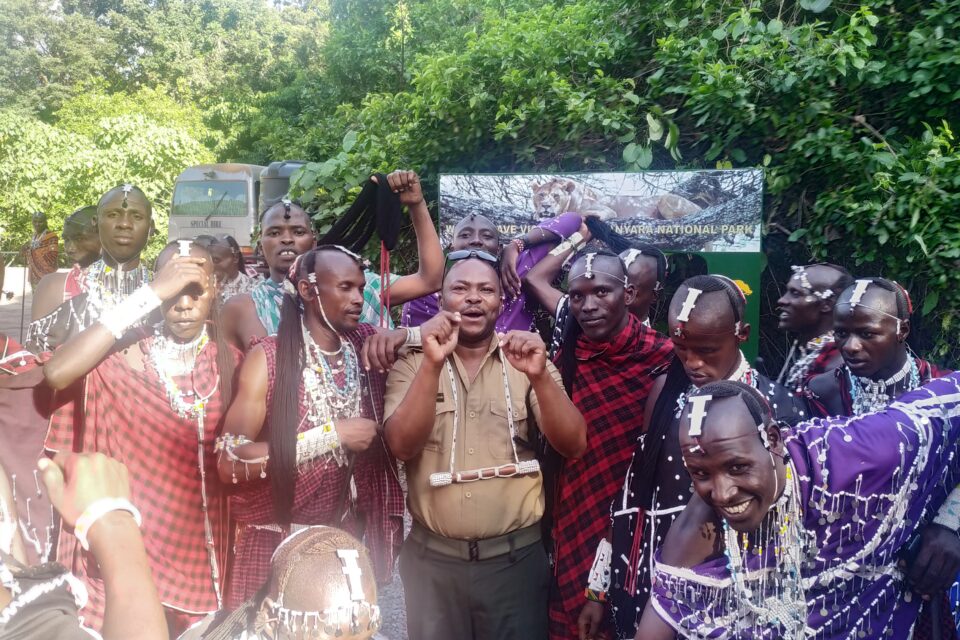Young warriors from Loiborsoit visit Lake Manyara National Park
(English & Swahili version see below)
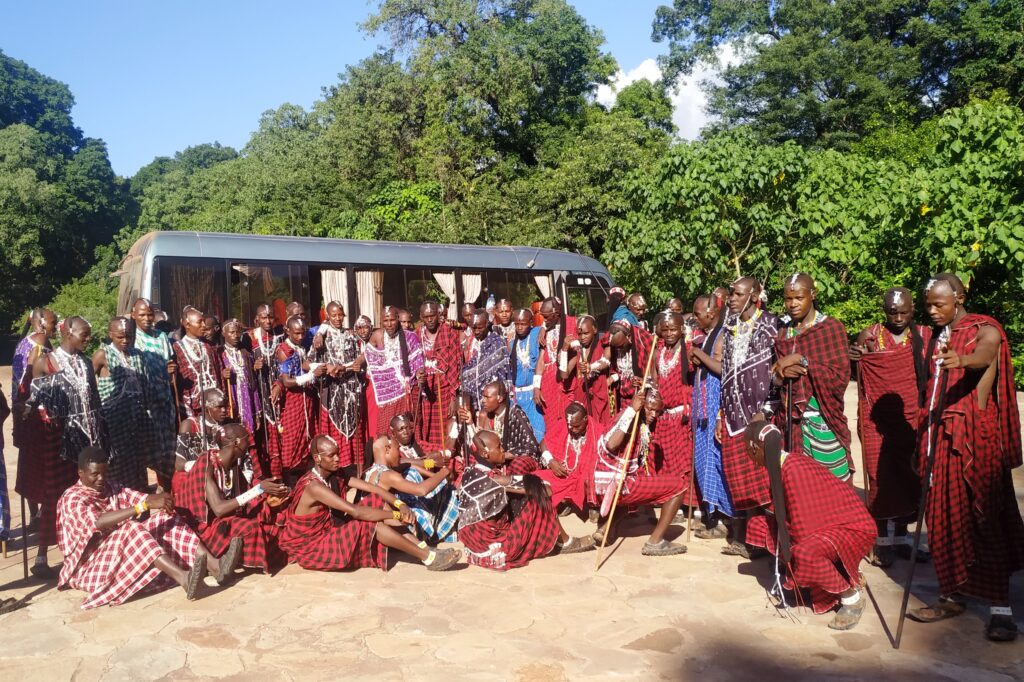
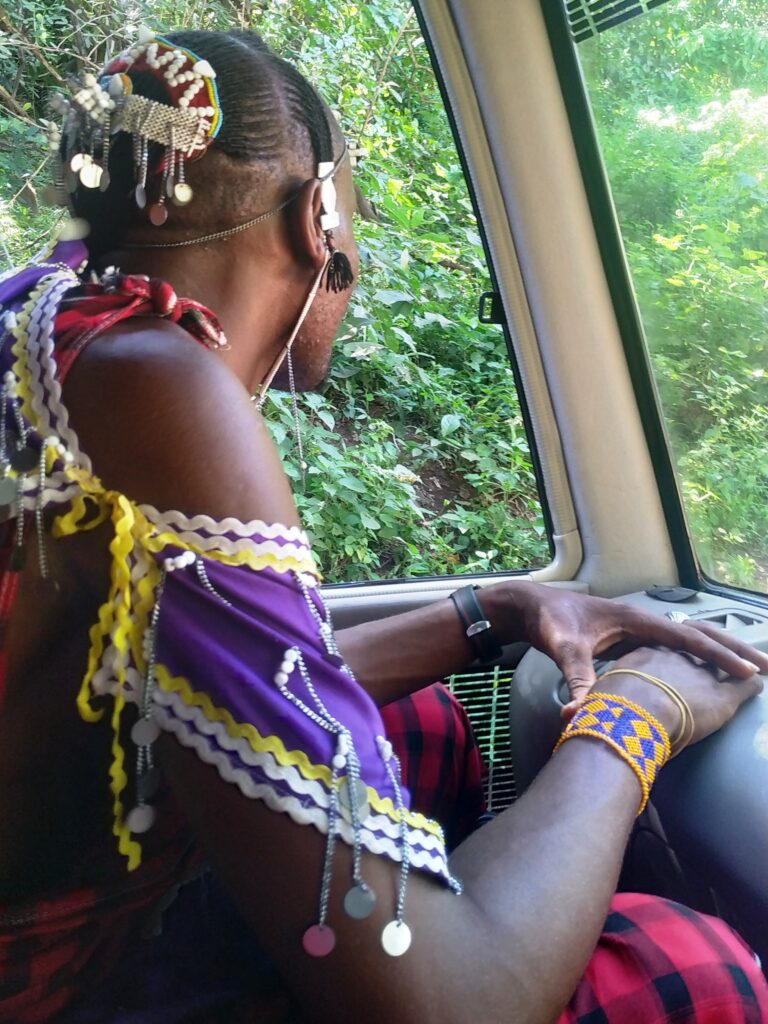
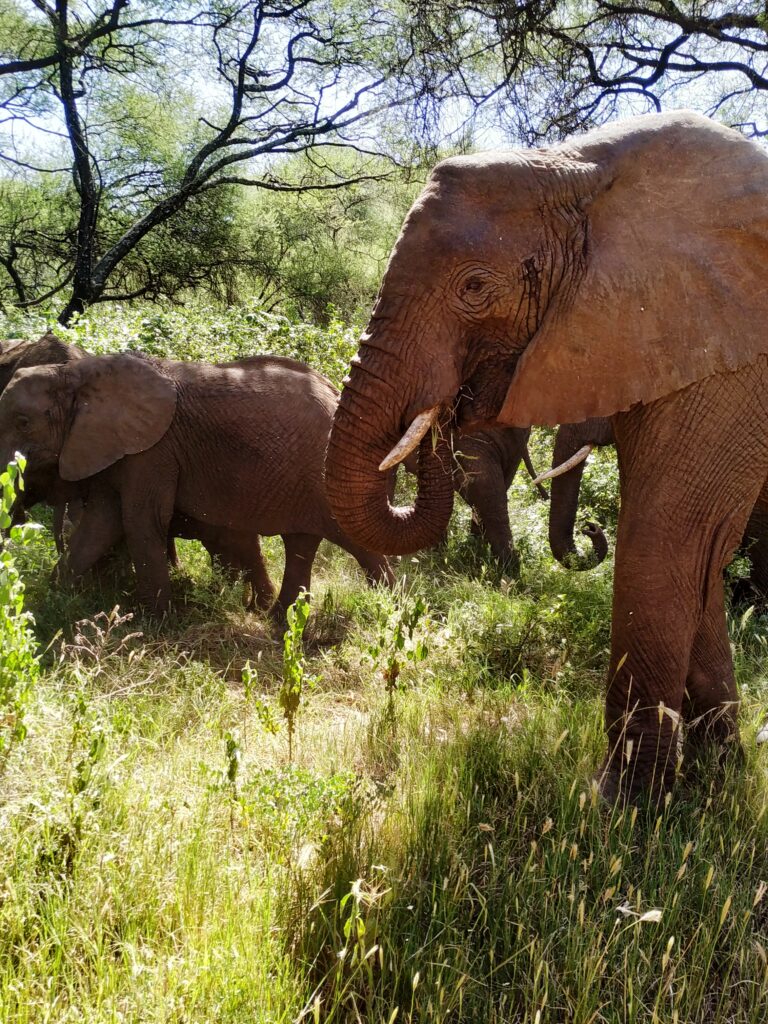
In Zusammenhang mit dem laufenden Kulturförderungsprojekt, welches zurzeit insbesondere die Morani (Jungkrieger) auf dem Gemeindegebiet von Loiborsoit unterstützt, haben wir eine kleine Projektidee aufgegriffen, welche auch für Umwelt- und Wildtierschutzprojekte von Nutzen sein könnte. Die Idee war, alle Jungkrieger (Morani) der Nyangulo-Altersklasse, welche zurzeit eine traditionelle Haartracht tragen, meist aus traditionell lebenden Familien stammen und oft in der Wildnis auf das Vieh aufpassen müssen, auf eine kleine Safari in einen nahegelegenen Nationalpark einzuladen. Auf dem Gemeindegebiet von Loiborsoit gibt es zurzeit überdurchschnittlich viele Jungkrieger mit einer solchen traditionellen Massai-Frisur. Im Vorfeld musste daher alles gut geplant und vorbereitet werden. Wegen der grossen Anzahl potentieller Reiseteilnehmer, wurden zwei Busse mit über je 35 Sitzplätzen organisiert. Aufgrund der Regenzeit kam eine Safari in den nahegelegenen Tarangire Nationalpark leider nicht in Frage. Daher haben wir uns für einen Besuch in den Lake Manyara Nationalpark entschieden. Am Vortag wurden über 70 Lunch-Beutel vorbereitet und weitere Reiseverpflegung bereitgestellt.
Noch vor Morgendämmerung waren die vielen Morani von ihren teils weit entfernten Hüttensiedlungen losgelaufen, um am Hauptsitz von ENKAINA-E-RETOTO noch vor Reisebeginn ein einfaches Frühstück mit Chai und Chapati-Fladenbrot einzunehmen. Kurz nach 6 Uhr sind unsere Busse mit den fröhlich singenden Jungkriegern Richtung Duka Bovu losgefahren. Die Busse haben den Parkeingang zum Lake Manyara Nationalpark in Mto wa Mbu bereits vor 10 Uhr erreicht. Nachdem dort alle Formalitäten erledigt und das spezielle Programm zum Nationalparkbesuch mit den zuständigen Rangern näher abgesprochen war, sind die Busse in den Nationalpark gefahren. Die Jungkrieger kennen die allermeisten Wildtiere von Begegnungen beim Kühehüten. Aus dem Safari-Fahrzeug konnten sie aber erstmals Elefanten, Giraffen und auch andere grössere Steppentiere aus nächster Nähe beobachten. Im Anschluss einer Mittagspause tanzten die Jungkrieger mit traditionellem Gesang am Ufer des Lake Manyara, wohl ganz zur Freude weiterer Nationalparkbesucher und Touristen.
Zum Abschluss des Nationlparkbesuchs haben die Park-Ranger den Jungkriegern eine spezielle Präsentation und Infoveranstaltung organisiert und ihnen auf anschauliche Weise die Wichtigkeit der Nationalparks und des Wildtierschutzes nähergebracht. Natürlich gab es mit den Rangern auch rege Diskussionen, welche vor allem Wildtierkonflikte im Massailand betreffen. Vor allem wurde über Massnahmen diskutiert, damit die Elefanten aus dem Tarangire NP weniger grosse Schäden an den Maisfeldern der Massaibevölkerung anrichten können. Im Anschluss sind die Morani vom Parkeingang zu Fuss fünf Kilometer laut singend und tanzend durch das Dorf Mto wa Mbu gezogen. Vor der Rückreise gab es dort für alle ein erfrischendes Sodagetränk. Erst spät in der Nacht sind Busse wohlbehalten in Loiborsoit angekommen, wo erneut eine kleine Abschlussverpflegung bereitstand. Diese Safari war für alle Jungkrieger und auch alle anderen Beteiligten eine sehr wertvolle und geschätzte Erfahrung, welche wohl durchwegs in positiver Erinnerung bleiben wird und wahrscheinlich mit anderen Teilnehmern im nächsten Jahr wiederholt wird…
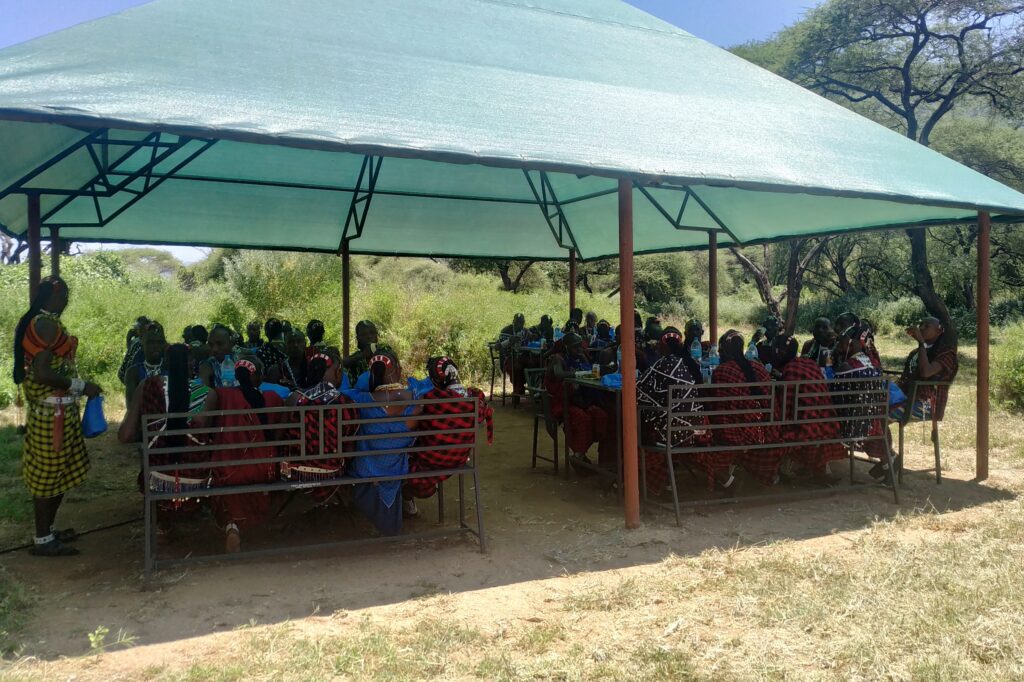
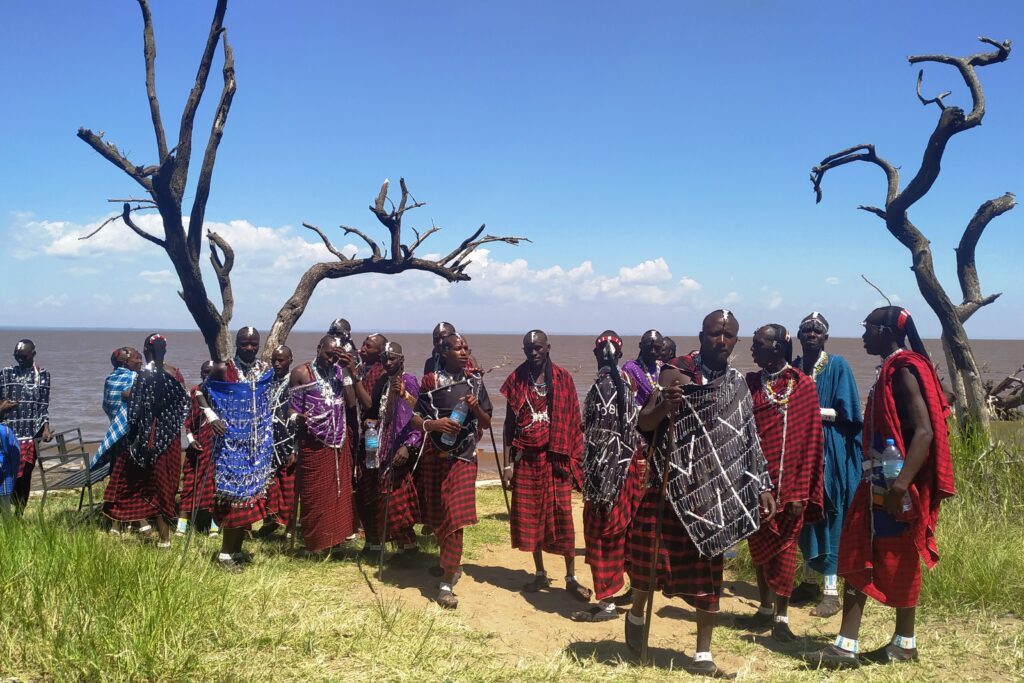
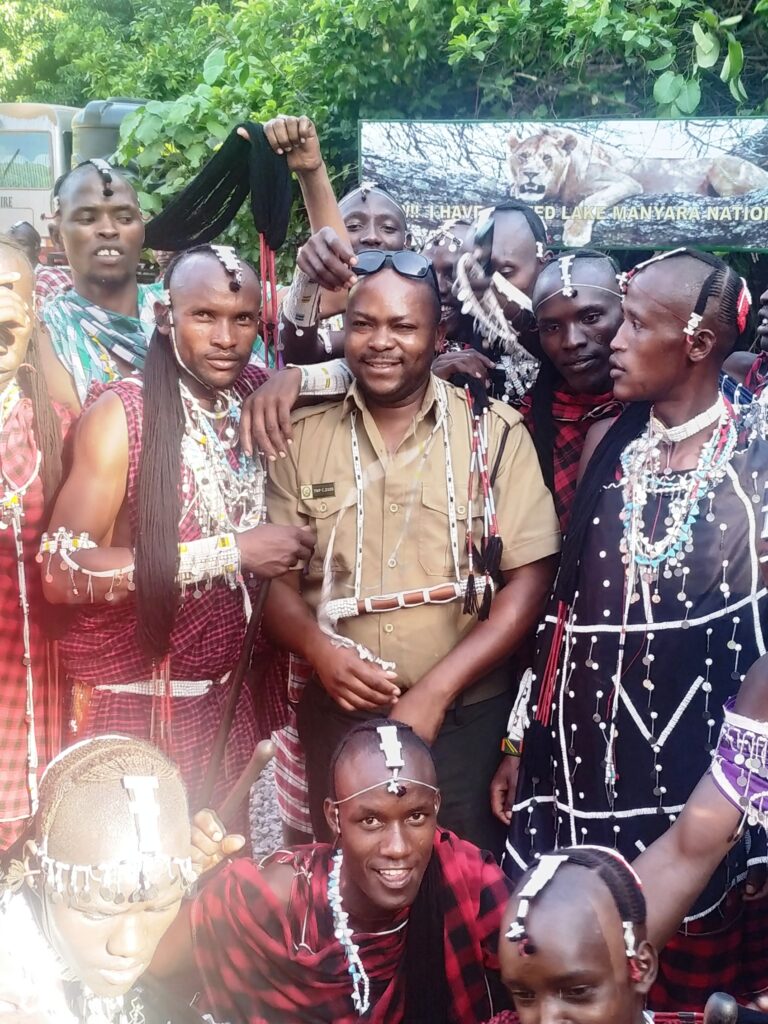
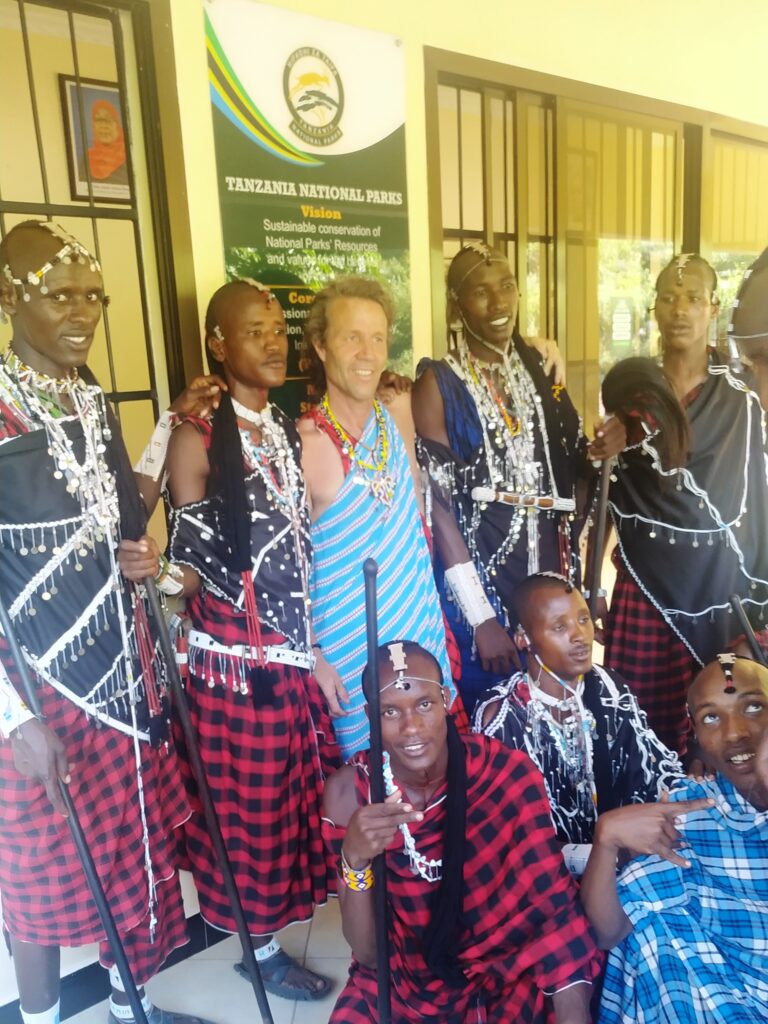
Young warriors from Loiborsoit visit Lake Manyara National Park
In connection with the ongoing cultural promotion project, which is currently supporting the Morani (young warriors) in the Loiborsoit community in particular, we came up with a small project idea that could also be useful for environmental and wildlife conservation projects. The idea was to invite all young warriors (Morani) of the Nyangulo age group, who currently wear a traditional hairstyle, mostly come from traditional families and often have to look after cattle in the wilderness, on a short safari in a nearby national park. The Loiborsoit community currently has an above-average number of young warriors with such a traditional Maasai hairstyle. Everything therefore had to be well planned and prepared in advance. Due to the large number of potential participants, two buses were organized, each with over 35 seats. Due to the rainy season, a safari in the nearby Tarangire National Park was unfortunately out of the question. We therefore decided to visit Lake Manyara National Park. More than 70 lunch bags were prepared the day before and additional travel provisions were provided.
Before dawn, the many Morani had set off from their partly distant hut settlements to have a simple breakfast of chai and chapati flatbread at the ENKAINA-E-RETOTO headquarters before the journey began. Shortly after 6 a.m., our buses left for Duka Bovu with the cheerfully singing young warriors. The buses reached the park entrance to Lake Manyara National Park in Mto wa Mbu before 10 am. Once all the formalities had been completed there and the special program for the national park visit had been discussed in detail with the rangers responsible, the buses drove into the national park. The young warriors know most of the wild animals from encounters while herding cows. From the safari vehicle, however, they were able to observe elephants, giraffes and other larger steppe animals at close range for the first time. After a lunch break, the young warriors danced and sang traditional songs on the shores of Lake Manyara, much to the delight of other visitors to the national park and tourists. At the end of the national park visit, the park rangers organized a special presentation and information event for the young warriors and gave them a vivid insight into the importance of national parks and wildlife conservation. Of course, there were also lively discussions with the rangers, mainly concerning wildlife conflicts in Massailand. In particular, measures were discussed to ensure that the elephants from Tarangire NP cause less damage to the maize fields of the Maasai population. Afterwards, the Morani walked five kilometers from the park entrance through the village of Mto wa Mbu, singing and dancing loudly. Before the return journey, everyone had a refreshing soda drink there. It was not until late at night that the buses arrived safely in Loiborsoit, where another snack was served. This safari was a very valuable and appreciated experience for all the young warriors and everyone else involved, which will probably remain a positive memory throughout and will probably be repeated with other participants next year…
